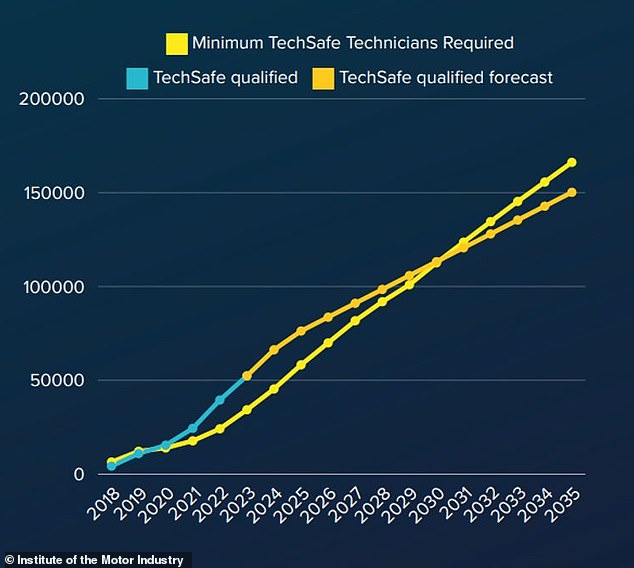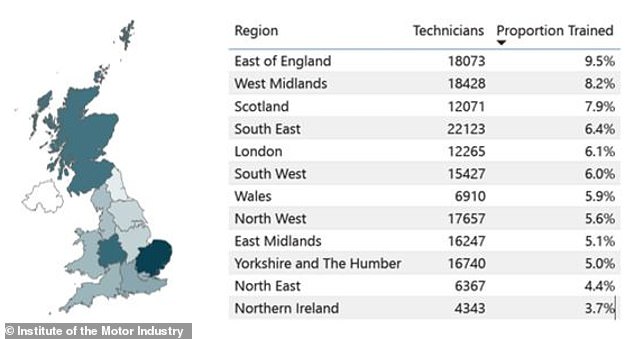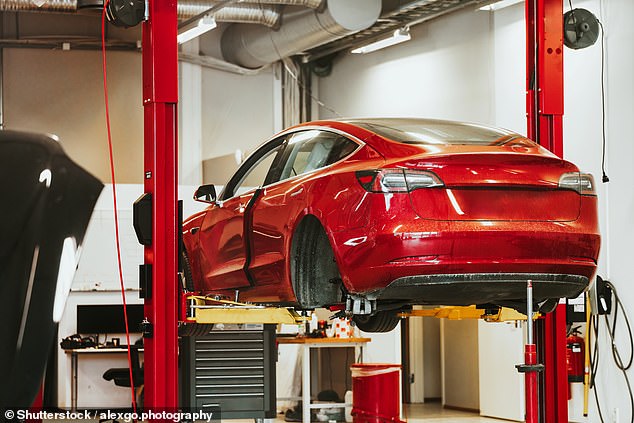Britain will face a shortage of 3,000 qualified electric car mechanics by 2031
Will we have enough trained mechanics to work on electric vehicles by the end of the decade? The IMI says no, based on the qualification path
The Labour government’s plan to reintroduce a ban on the sale of new petrol and diesel cars from 2030 and force British motorists to switch to electric vehicles has hit a major hurdle, a report this week found.
There is a predicted significant skills shortage among technicians trained to service and maintain the country’s electric vehicles, and in some parts of the country, skills shortages are already occurring.
According to the latest update from the trade association representing auto industry workers, we’re on track to have a shortage of 3,000 EV technicians by the start of the next decade, rising to 16,000 by 2035.
And in London and the south-east of England, where the number of electric cars is highest, there are already a limited number of technicians qualified to work on battery-powered cars.
The latest EV TechSafe certification data from the Institute of the Motor Industry (IMI) shows there are now 58,800 technicians qualified to work on electric vehicles.
This is the nationally recognised qualification required to provide aftercare services, such as repairs and maintenance, for electric cars.
The nearly 60,000 EV-certified car dealers represent less than a quarter (24 percent) of the UK automotive workforce.
Today they are responsible for the maintenance and servicing of the 1.1 million battery cars already on Britain’s roads.

Based on current forecasts for the growth of electric cars on the road, the IMI says Britain will need 124,000 trained mechanics by 2031, but is on track to have just 121,000

This skills gap could widen if Prime Minister Keir Starmer accelerates the ban on the sale of new petrol cars until 2030
With Keir Starmer widely expected to reintroduce the ban on the sale of new petrol and diesel cars from 2030, the car industry is growing concerned that garages will be short-staffed to cope with the rise in electric vehicles.
Based on current predictions of the increase in electric cars on the road ahead of a ban on petrol and diesel vehicles in 2035, the IMI calculates that 124,000 technicians will need to be available for aftercare services by 2031.
Looking at the current trajectory of technicians gaining qualifications, we expect that by the same date there will be only 121,000 certified technicians allowed to work towards these qualifications.
According to the IMI, 166,000 EV-ready technicians will be needed by 2035.
However, the number of qualifications shows that there will ultimately be only about 150,000.
If the prime minister moves the ban forward to 2030, the shortage of electric car mechanics could increase dramatically in the first half of the next decade.
“There has been encouraging growth in the number of technicians achieving EV certification so far in 2024,” said Kevin Finn, IMI Executive Chairman.
But with the new administration expecting the ICE ban deadline to be reinstated in 2030, the skills shortage remains.
“Automotive companies must urgently prioritize training more technicians so that the expected increase in EV owners can find a local technician qualified to work safely on their vehicle.”
London and the South East may already be facing a shortage of EV technicians
The latest data from the IMI illustrates the current postcode lottery for EV skills and suggests there may already be a shortage in some areas.
The two regions that have emerged as having a potentially uneven supply of electric car mechanics are London and the South East. These are the parts of the country with the most electric cars on the road.

London and the South East have the highest numbers of ‘plug-in electric cars’, but not the highest percentage of qualified EV mechanics

The IMI warns car companies that they must urgently prioritise training so that the expected increase in EV owners can ‘find a local technician qualified to work safely on their vehicle’
According to figures published in April by the Society of Motor Manufacturers and Traders, there are almost 530,000 plug-in electric vehicles (both fully electric and plug-in hybrids) in the two territories, accounting for around 5.9 per cent of all cars on the road.
However, London and the South East of England do not have the highest number of certified EV technicians.
According to the IMI, only 6.1 percent and 6.4 percent of technicians, respectively, are trained in electric vehicles.
In contrast, the East of England is the region with the highest percentage of qualified EV installers (9.5 percent), while Northern Ireland has the lowest percentage at just 3.7 percent.

Some links in this article may be affiliate links. If you click on them, we may earn a small commission. That helps us fund This Is Money and keep it free. We do not write articles to promote products. We do not allow commercial relationships to influence our editorial independence.
